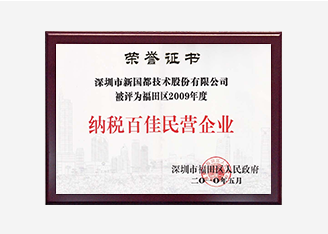In general, the diet of lung cancer patients during chemotherapy should follow the principles of comprehensive nutrition, balanced diet, light taste, and small and frequent meals. Specifically, the following should be done:
1. Comprehensive nutrition
Cancer patients always give people the impression of weight loss and weakness. One is because of the consumption of the tumor disease, and the other is because the side effects of the treatment period will make the patient's appetite disappear, insufficient nutritional intake, and cause weight loss. Patients must ensure adequate nutritional supply during treatment to support body functions against tumor cells and reduce the side effects of chemotherapy and radiotherapy. Be diversified in your daily diet, choose high-protein, multi-vitamin, low-fat, and low-sugar foods, and avoid spicy, fried, and irritating foods.
2. A balanced diet
A balanced diet should be established and eat more fresh vegetables. Generally, foods such as grains, beans, meat and eggs, fish, vegetables, fruits, etc. are eaten every day. Fruits and vegetables cannot replace each other, nor can plant protein and animal protein replace each other.
3. Get high-quality protein
Patients with lung cancer should eat more protein-rich foods, including eggs, milk, lean meat, poultry, fish, and soy products.
4. Eat more fruits and vegetables
Fresh fruits and vegetables are rich in vitamins. Vitamins have certain auxiliary anti-tumor effects. Therefore, a certain amount of fruit and vegetable intake must be maintained every day, such as apples, grapes, kiwis, peaches and other fruits, as well as garlic, carrots, bitter melon, shiitake mushrooms, and fungus. Waiting for vegetables is a good choice.
5. Small meals
Patients with lung cancer should avoid being too hungry or over-satisfied, and try to eat a small amount of meals, each meal is 7-8 minutes full, in addition to the main meal, you can add meals 2~3 times appropriately.
6. Eat more soft foods
Patients with lung cancer may experience symptoms such as nausea, bloating, loss of appetite, and indigestion during chemotherapy. In order to reduce the burden on the stomach, they should eat more soft, digestible, and low-cellulose foods. For example, soft rice, steamed buns, dumplings, steamed custard, pumpkin, winter melon.
How can the family members of the patient take care of their diet?
During chemotherapy of lung cancer patients, the encouragement and support of family members plays an important role. To some extent, the results of treatment are the result of the joint efforts of patients, doctors, and family members. The care of patients’ diet is very important, and family members need to provide patients with a rational diet and provide psychological and action assistance.
During chemotherapy, family members should actively accompany them, and patients should provide necessary assistance during meals, and encourage patients to eat more of their favorite nutritious foods, and eat less and more meals;
Clean the patient's mouth in time, and rinse the patient's mouth in time after the patient has nausea or vomiting;
Encourage patients to drink plenty of water, not less than 2500ml per day, to promote the excretion of toxic metabolites;
Maintain a good dining environment, try to eliminate the potty, spittoon, and purulent sputum and blood stains when changing dressings to avoid malignant irritation.
What to do if the patient is anorexia?
Anorexia is a common symptom of lung cancer patients during chemotherapy. Patients often feel full and dislike food. In this case, the patient's diet should be able to stimulate the patient's appetite in terms of color, aroma, and taste, and provide as many kinds of food as possible, so that the patient can have more choices. You can also prepare some sour appetizers, such as tomatoes, lemon juice and so on. At the same time, it creates a relaxed and comfortable eating environment for patients, and encourages patients to exercise properly before meals to promote gastrointestinal motility. If necessary, you should communicate with your doctor and supplement your nutrition with oral medications.
What should I do if the patient has oral ulcers?
Oral ulcers are one of the common complications of lung cancer patients after chemotherapy. Families should avoid letting patients eat foods and drinks that are too hot, too hard, rough, and irritating.
What should I do if the patient has symptoms of vomiting?
When the patient has nausea and vomiting, the food can be changed to liquid or semi-liquid, such as porridge, oatmeal, etc., and antiemetic therapy can be used.
